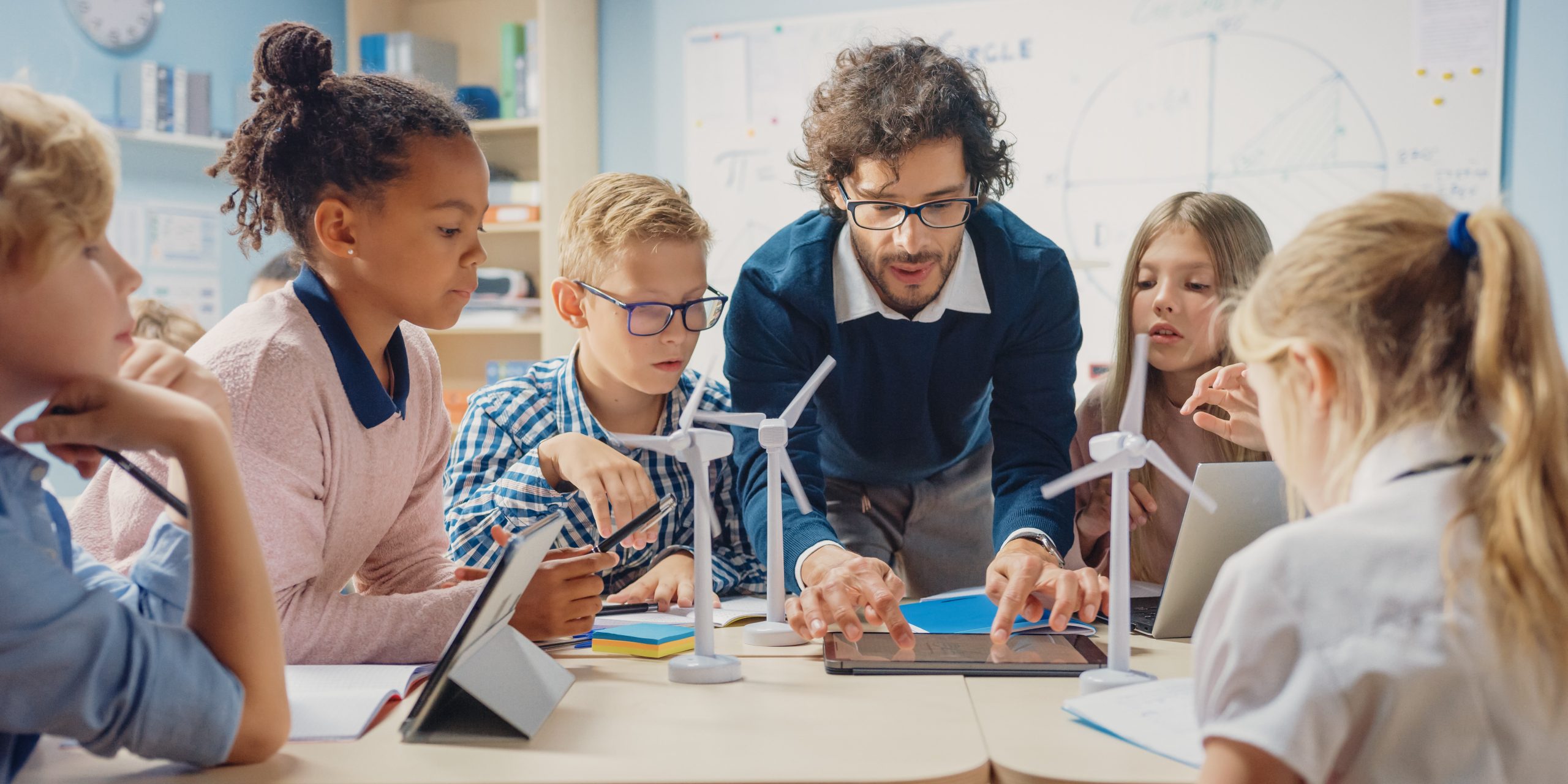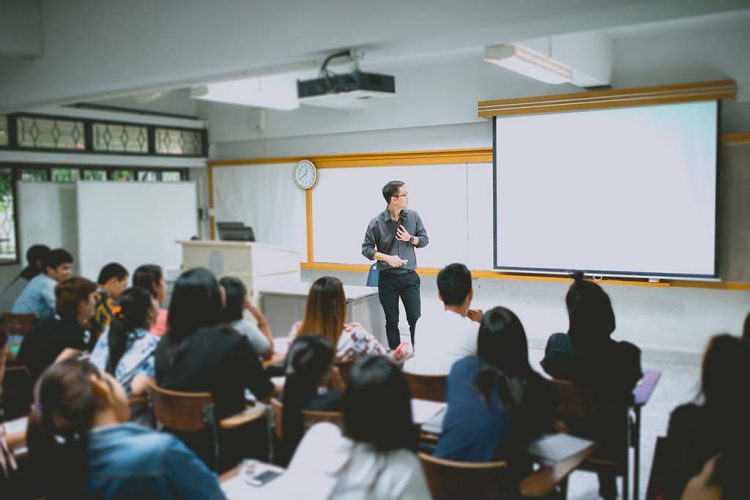Accelerate Learning with Primary Science Tuition Singapore for Young Minds
Accelerate Learning with Primary Science Tuition Singapore for Young Minds
Blog Article
Exploring the Various Training Strategies in Main Science Education And Learning Today
The landscape of primary science education and learning is developing, with various training strategies getting prestige in contemporary class. Inquiry-based learning, hands-on experiments, and the integration of technology are redefining just how educators engage young minds. Additionally, joint techniques and distinguished direction are being used to satisfy the varied requirements of trainees, enhancing both engagement and understanding. As we examine these methods, concerns emerge concerning their performance and the implications for future academic techniques. What might these changes in technique mean for the next generation of students?
Inquiry-Based Discovering
Inquiry-Based Knowing (IBL) is a pedagogical approach that urges students to explore scientific principles through doubting, investigation, and hands-on testing. This approach highlights the duty of trainees as active participants in their understanding, advertising crucial reasoning and problem-solving skills. By engaging with real-world questions, students become inspired and curious, which enhances their understanding of clinical concepts.
In IBL, teachers work as facilitators, directing trainees as they browse their inquiries instead than delivering information straight. This student-centered approach enables distinction, accommodating different discovering speeds and designs. Students create skills in formulating hypotheses, creating experiments, and analyzing information, which are vital for scientific proficiency.
Additionally, IBL cultivates cooperation among pupils, motivating them to share findings and ideas. This cumulative query advertises social abilities and a sense of neighborhood within the classroom. Furthermore, the process of query urges resilience, as students find out to embrace failure as a tipping rock toward understanding.
Hands-On Experiments
Hands-on experiments are a crucial component of efficient scientific research education, enhancing the principles of inquiry-based understanding. These experiments permit pupils to engage straight with clinical ideas, cultivating a deeper understanding through experiential discovering. By controling materials and observing results, young students can grasp abstract concepts in concrete methods.
Such tasks promote essential reasoning and problem-solving abilities, as students assume end results, conduct experiments, and analyze outcomes. This procedure motivates them to ask questions, fine-tune their understanding, and develop a clinical mindset. In addition, hands-on experiments can be tailored to diverse understanding styles, ensuring that all students have the possibility to involve meaningfully with the content.
In addition, hands-on experiments typically motivate collaboration among peers, advertising synergy and communication abilities. Working in groups allows students to share ideas, go over searchings for, and gain from each other, which enhances their overall educational experience.
Incorporating hands-on experiments into the primary science curriculum not only enhances the finding out setting however likewise cultivates a long-lasting interest in scientific research. By actively taking part in their education and learning, students are more likely to develop an interest for scientific questions that expands past the classroom.

Modern Technology Assimilation
Integrating innovation into main scientific research education has ended up being progressively necessary in fostering pupil involvement and improving discovering results. The use of electronic devices, such as interactive simulations, online labs, and instructional software, provides pupils with chances to check out scientific ideas in cutting-edge methods. These resources facilitate a deeper understanding of complex subjects by enabling learners to visualize and adjust variables that would be impractical in a conventional class setup.
Furthermore, innovation integration urges customized learning experiences. Pupils can proceed at their own pace, taking another look at tough ideas with multimedia sources, which accommodate various understanding designs. This informative post adaptability not just sustains private growth but additionally grows a feeling of autonomy in students.
Additionally, technology acts as a bridge to real-world science, attaching trainees with existing research study and professional payments. Access to on the internet databases and clinical journals broadens trainees' viewpoints on scientific query and fosters important thinking skills.
Collaborative Discovering
Collaborative knowing plays an essential duty in primary science education by cultivating synergy and communication skills amongst students. This technique urges students to interact, share knowledge, and participate in analytical, which boosts their understanding of clinical ideas. By taking part in group activities, students discover to express their concepts, pay attention to varied perspectives, and negotiate services, all of which are crucial skills in both scholastic and real-world contexts.

Research study shows that collaborative knowing can lead to boosted inspiration and engagement in scientific research subjects, as trainees locate pop over here enjoyment in common experiences (primary science tuition Singapore). Additionally, this technique prepares students for future collective undertakings, equipping them with the abilities necessary for efficient synergy in higher education and learning and professional atmospheres. Inevitably, accepting collective learning in primary science education can significantly enrich the understanding experience and advertise a deeper understanding of clinical questions
Distinguished Direction

Distinguished direction can show up in numerous methods, such as varying the content, processes, or items of knowing. For instance, instructors may use tiered assignments that give differing degrees of complexity, allowing students to operate at their particular readiness levels. Furthermore, flexible organizing methods can promote cooperation amongst pupils with various abilities, promoting peer discovering.
Evaluation plays an essential duty in this technique, as it educates guideline and assists educators recognize each student's one-of-a-kind needs. Formative analyses, such find out as quizzes and monitorings, can assist instructors in readjusting their techniques to boost discovering end results. primary science tuition Singapore. Inevitably, by executing distinguished guideline in primary scientific research education and learning, educators can cultivate a much more efficient and fair discovering setting, empowering all pupils to reach their complete capacity in understanding scientific sensations
Conclusion
In summary, the diverse mentor approaches in main scientific research education, including inquiry-based discovering, hands-on experiments, technology combination, collaborative knowing, and set apart guideline, collectively add to an extra reliable knowing setting. These approaches promote essential thinking, analytical skills, and a deeper understanding of clinical principles. By implementing these techniques, instructors can produce encouraging and interesting class that deal with the diverse demands of pupils, inevitably cultivating a lifelong passion in scientific research and enhancing academic achievement.
Inquiry-Based Learning (IBL) is an instructional approach that encourages pupils to discover clinical concepts via doubting, examination, and hands-on experimentation.Collaborative knowing plays an important function in key science education by cultivating synergy and interaction skills among trainees.Study shows that collaborative learning can lead to raised motivation and involvement in scientific research topics, as pupils discover enjoyment in shared experiences.In cultivating a comprehensive discovering environment, differentiated instruction arises as a key approach to fit the varied needs and capacities of trainees in key science education and learning. Inevitably, by executing separated instruction in main science education and learning, teachers can cultivate a much more reliable and fair discovering setting, empowering all pupils to reach their complete capacity in comprehending clinical phenomena.
Report this page